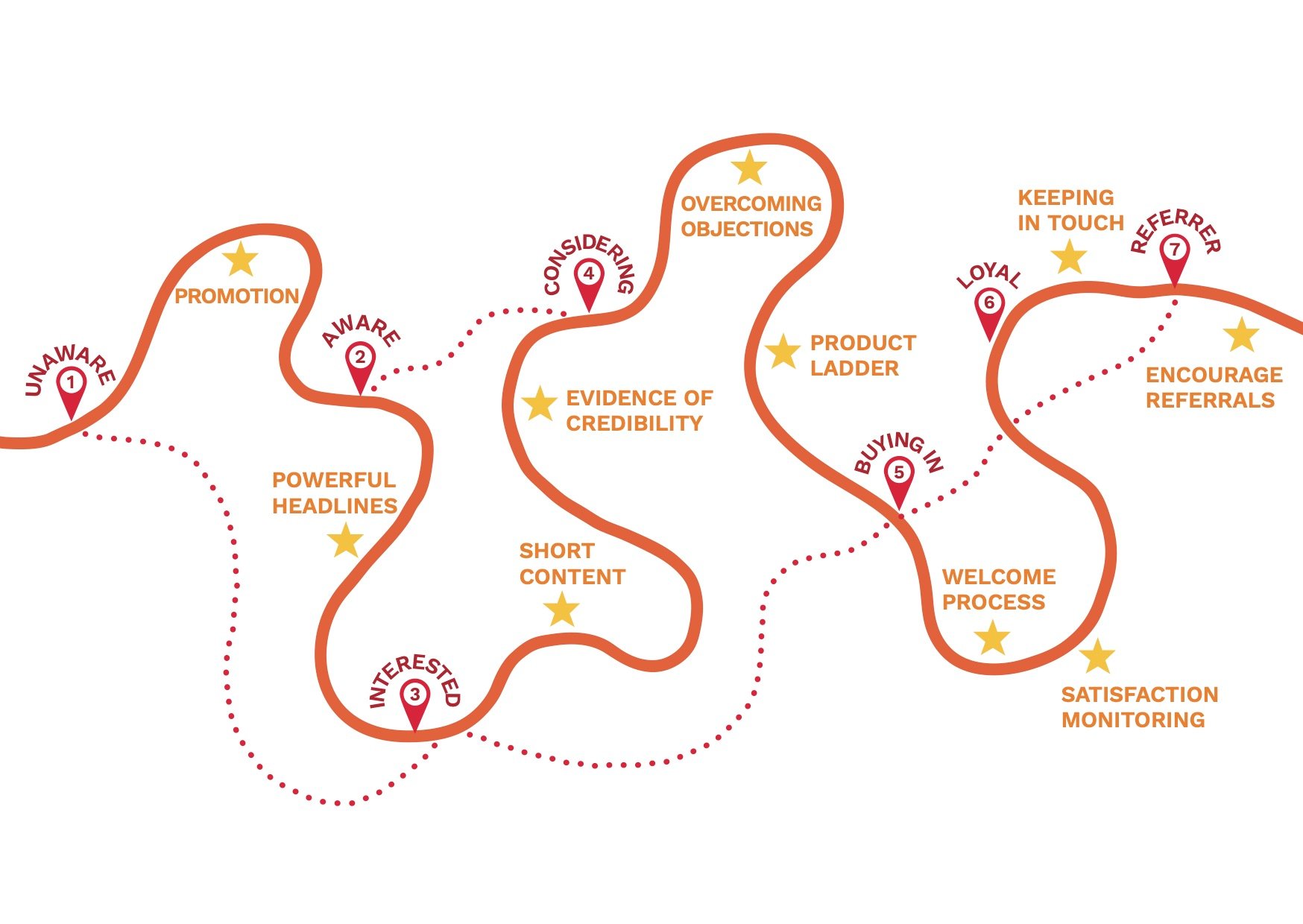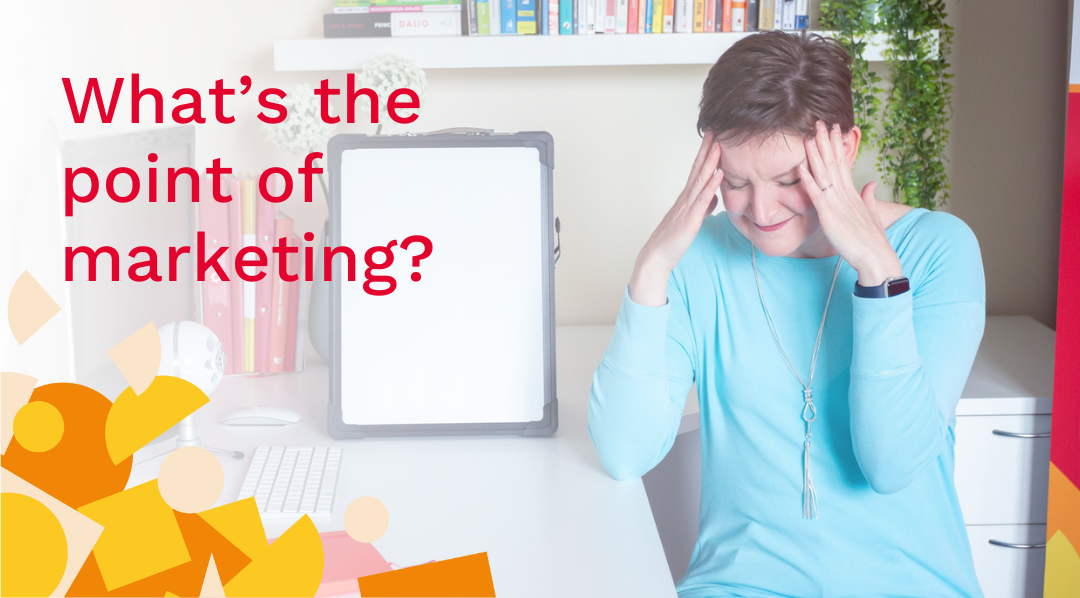Every new product, software, system or process must have a purpose. It must either solve a problem or provide an emotional benefit or else it has no value and no one will buy it. By deeply understanding the problem your product solves for your customers, you can stay focused on what features will deliver the most value.
For example, if I was designing a new computer keyboard, I would need to consider...
Likewise, you must always stay focused on your marketing's purpose.
For example, if I was designing a new computer keyboard, I would need to consider...
- Who is it for? Is it for a gamer or a business person? Will you sell to individuals or businesses?
- Why would someone need and want it? Is it going to be a mainstay of their desk or will it be something they plug into a tablet to use occasionally?
Likewise, you must always stay focused on your marketing's purpose.
Who's it for?
The first step is to make sure you know exactly who it is you want to attract to your business.
Your business needs customers who are going to:
That's why one of the first questions I ask a new client is 'who is your ideal customer'?
If you spend a bit of time thinking about exactly the kind of person you want to attract, then you'll find that a lot of your marketing questions become much easier to answer. You'll know where to advertise, which events to go to and whether to be on social media, because you'll simply have to ask whether your ideal customer persona will be there.
You might find this checklist helpful when creating your own ideal customer persona.
Your business needs customers who are going to:
- Need your product
- Have the budget to spend on your product
- Be profitable for you
- Be enjoyable and energising to work with
- Benefit from everything your product or service has to offer
That's why one of the first questions I ask a new client is 'who is your ideal customer'?
If you spend a bit of time thinking about exactly the kind of person you want to attract, then you'll find that a lot of your marketing questions become much easier to answer. You'll know where to advertise, which events to go to and whether to be on social media, because you'll simply have to ask whether your ideal customer persona will be there.
You might find this checklist helpful when creating your own ideal customer persona.
Why do I need marketing?
Many people think that the purpose of marketing is to "get your name out there" and create leads, but that's not the whole picture.
The purpose of marketing is to drive sales and profit. Generating leads is one way of increasing revenue, but it's not the only way and it's by no means guaranteed that more leads = more sales. It also doesn't always follow that more sales = more profit.
What you really want in a business is happy, loyal customers. So think of your marketing as a 'happy customer' machine!
The purpose of marketing is to drive sales and profit. Generating leads is one way of increasing revenue, but it's not the only way and it's by no means guaranteed that more leads = more sales. It also doesn't always follow that more sales = more profit.
What you really want in a business is happy, loyal customers. So think of your marketing as a 'happy customer' machine!
How do people buy things?
If the aim of marketing is to increase sales and profit then we need to understand how real people actually buy things. How do they go from never having heard about you, to being raving fans who buy loyally and tell all their friends about you?

Back in 1961, Everett Rogers described the way people make decisions in the "Adoption model". The same principle has been applied to buying decisions and so many people now call it the “Sales Funnel”. You might already be familiar with it. Here's a version of the sales funnel I use.
- Aware: first people hear about you…
- Interested: they look to find out more…
- Considering: they weigh up in their minds whether you're what they’re after and find out what it'd be like to be your customer
- Buying in: they buy from you and get value from what you have to offer
- Loyal: they buy from you repeatedly and recommend you to their friends
Depending on what you sell and who you sell it to, your buyers may not go through all these stages. If you sell an "impulse buy", people may go straight from "Aware" to "Buying in". The more risk your buyer feels in making the decision (i.e. what are the implications of making a bad decision) the more stages they'll go through in making their decision.
The purpose of your marketing
The purpose of good, effective marketing is to support your customers at every stage of the sales process. Your marketing should help your customers make their buying decision in their own time and in such a way that when they do finally buy, they know they have made the right choice and they feel good about the decision they have made.
If you are supporting your customers effectively at every stage in the process then, when you spend money on generating awareness, you will be confident that it is money well spent.
If you are supporting your customers effectively at every stage in the process then, when you spend money on generating awareness, you will be confident that it is money well spent.
Stop putting fuel in an inefficient machine
The mistake a lot of people make is they assume that their buyers have only two stages: Aware and Buying In. If you assume this then your buyers have to navigate their way through their buying decision themselves, which is much more effort. The harder it is to buy from you, the more likely it is that people will give up. If you make it really easy for people to make their buying decision then they will probably choose you. , providing them with all the information they need at the right time]
What's the point of marketing?
A lot of people think that marketing is about speeding people up in their buying decision – it's not. It's about understanding how people want to buy from you and making that buying decision as easy and comfortable for them as possible. This means providing buyers with the right messages and the right information at the right time so they can make that buying journey in the timescales that suit them.
If your marketing isn't working for your business, please get in touch. I'd love to hear from you and see if I can help.
If your marketing isn't working for your business, please get in touch. I'd love to hear from you and see if I can help.



Comments